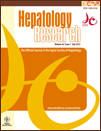
HEPATOLOGY RESEARCH
Scope & Guideline
Unveiling the complexities of liver health with cutting-edge research.
Introduction
Aims and Scopes
- Hepatocellular Carcinoma (HCC) Research:
A significant portion of the journal's publications centers on hepatocellular carcinoma, including studies on its diagnosis, treatment strategies, prognostic factors, and molecular mechanisms. - Chronic Liver Diseases and Viral Hepatitis:
The journal frequently publishes research on chronic liver diseases, particularly hepatitis B and C, exploring their epidemiology, treatment regimens, and long-term outcomes. - Metabolic Dysfunction-Associated Fatty Liver Disease (MAFLD):
Research focusing on metabolic dysfunction-associated fatty liver disease is increasingly prevalent, addressing its pathophysiology, associated risks, and management strategies. - Innovative Therapeutic Approaches:
The journal showcases advancements in therapeutic approaches, including the use of immunotherapy, molecular targeted agents, and novel surgical techniques for liver diseases. - Biomarkers and Diagnostic Techniques:
A consistent theme is the identification and validation of biomarkers for liver diseases, as well as the development of non-invasive diagnostic techniques. - Multidisciplinary Approaches in Hepatology:
The journal highlights the importance of multidisciplinary approaches in managing liver diseases, integrating insights from surgery, oncology, nutrition, and immunology.
Trending and Emerging
- Artificial Intelligence and Machine Learning in Hepatology:
There is a noticeable rise in studies leveraging artificial intelligence and machine learning to improve diagnostic accuracy and treatment outcomes in liver diseases. - Immunotherapy and Personalized Medicine:
Research on immunotherapy, particularly in the context of hepatocellular carcinoma, is gaining momentum, with a focus on personalized treatment strategies based on genetic and molecular profiling. - Integration of Nutrition in Liver Disease Management:
An emerging trend is the emphasis on nutritional management and its impact on liver disease outcomes, reflecting a holistic approach to treatment. - Longitudinal Studies on Disease Progression:
There is an increased interest in longitudinal studies that track disease progression over time, particularly in chronic liver diseases, to better understand their natural history. - Non-invasive Diagnostic Techniques:
Advancements in non-invasive diagnostic methods, such as elastography and serum biomarkers, are trending, as they provide safer alternatives to traditional liver biopsies.
Declining or Waning
- Traditional Surgical Approaches:
As newer minimally invasive techniques and targeted therapies gain traction, traditional surgical approaches to liver diseases may be receiving less emphasis in recent publications. - Basic Science Research without Clinical Application:
There seems to be a waning interest in purely basic science research that lacks immediate clinical relevance, as the journal increasingly prioritizes translational studies. - Epidemiological Studies without Intervention Focus:
Epidemiological studies that do not incorporate intervention strategies or actionable findings are becoming less common, as the journal shifts toward research with direct clinical implications.
Similar Journals
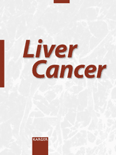
Liver Cancer
Transforming understanding of liver neoplasms globally.Liver Cancer is a premier, peer-reviewed journal dedicated to the comprehensive study and advancement of knowledge surrounding liver neoplasms. Published by KARGER and headquartered in Switzerland, this journal has been an open-access platform since 2012, providing researchers with invaluable insights into the rapidly evolving field of hepatology and oncology. With an impressive impact factor that places it in the Q1 category for both Hepatology and Oncology in 2023, Liver Cancer stands out as a high-impact conduit for groundbreaking research, ranking #19 out of 404 in Medicine _ Oncology and #6 out of 82 in Medicine _ Hepatology according to Scopus. Researchers, practitioners, and students are encouraged to engage with the journal's content, which encompasses clinical studies, basic research, and reviews that contribute significantly to understanding liver cancer dynamics, diagnosis, and treatment strategies. This journal not only facilitates the dissemination of knowledge but also fosters collaboration in a well-established and impactful global scientific community.
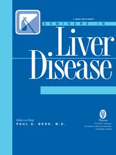
SEMINARS IN LIVER DISEASE
Pioneering discussions in the field of hepatology.SEMINARS IN LIVER DISEASE is a premier journal dedicated to advancing the field of hepatology, published by THIEME MEDICAL PUBL INC. Established in 1981, it has become a respected resource within the academic community, providing high-quality peer-reviewed articles that cover a broad range of topics related to liver diseases. With an impressive impact factor and recognized as a Q1 journal in the hepatology category, it ranks 17th out of 82 journals in the field, placing it in the top 21% of its category according to Scopus rankings. Although it does not offer open access, the journal’s rigorous standards and extensive network ensure that it reaches a wide audience of clinicians, researchers, and students, fostering knowledge and innovation in liver disease management. The journal's objectives focus on disseminating critical insights and promoting informed discussions that can pave the way for future research and clinical advancements in hepatology.

Translational Gastroenterology and Hepatology
Bridging Discovery and Care in Gastroenterology.Translational Gastroenterology and Hepatology, published by AME Publishing Company, stands as a pivotal platform for advancing the understanding and treatment of gastrointestinal and liver diseases. With its focus on translational research, this journal aims to bridge the gap between laboratory discoveries and clinical applications, thus fostering improvements in patient care. Although specific metrics like H-Index and Scopus ranks are currently unavailable, the journal is committed to maintaining high standards of scholarly communication and excellence. As an open-access publication, it ensures that valuable findings are readily accessible to a global audience, promoting collaboration and innovation among researchers, clinicians, and healthcare professionals invested in gastroenterology and hepatology. The journal's dedication to disseminating groundbreaking research makes it an essential resource for those seeking to stay at the forefront of these ever-evolving fields.
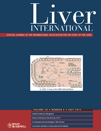
LIVER INTERNATIONAL
Elevating the standards of liver research globally.LIVER INTERNATIONAL, with its ISSN 1478-3223 and E-ISSN 1478-3231, is a prestigious peer-reviewed journal published by Wiley in the United Kingdom. Established in 2003, it focuses on advancing the field of hepatology, covering a broad spectrum of topics including liver disease, hepatocellular carcinoma, and transplantation. Ranking #10 out of 82 in the Scopus category for Medicine - Hepatology and boasting a remarkable 88th percentile, LIVER INTERNATIONAL has secured its reputation as a leading journal, recognized as Q1 in the 2023 category quartiles. The journal emphasizes accessibility, offering an open access option to ensure that critical research findings reach a wider audience. By facilitating the dissemination of high-quality research, LIVER INTERNATIONAL plays a vital role in shaping contemporary hepatological discourse and bridging academic inquiry with clinical practice, making it an essential resource for researchers, healthcare professionals, and students alike.

Canadian Journal of Gastroenterology and Hepatology
Advancing Knowledge in Gastroenterology and HepatologyCanadian Journal of Gastroenterology and Hepatology, published by HINDAWI LTD, serves as a vital resource in the fields of gastroenterology and hepatology. Since its inception in 1987, this open-access journal has made significant contributions to advancing research and clinical practice through its comprehensive coverage of topics ranging from liver diseases to gastrointestinal disorders. With an impressive Q2 ranking in Gastroenterology and a Q3 ranking in Hepatology as of 2023, the journal has established itself as an influential platform for researchers and healthcare professionals seeking to disseminate and acquire knowledge. The journal is based in Egypt, with its operational headquarters located in London, England. Notably, it holds a respectable standing in Scopus rankings, placed at Rank #64 in Gastroenterology and Rank #34 in Hepatology, reflecting its impact and relevance in the medical community. With a commitment to quality and accessibility, the Canadian Journal of Gastroenterology and Hepatology continues to foster innovation and collaboration among its readers.

Journal of Clinical and Translational Hepatology
Elevating clinical practice with translational research.Journal of Clinical and Translational Hepatology is an esteemed publication dedicated to advancing the field of hepatology through innovative research and clinical insights. Published by XIA & HE PUBLISHING INC, this journal connects researchers and healthcare professionals in the exploration of liver diseases and their management. With an impact factor that reflects its significant contribution to the discipline, the Journal holds a commendable Q2 classification in Hepatology as of 2023, and it ranks highly in both Gastroenterology and Hepatology categories on Scopus, positioning it within the top 80th percentile of its field. Although the journal is not open access, it provides its audience with invaluable information, encouraging collaboration that aims to translate clinical findings into transformative patient care. With a publication history spanning from 2013 to 2024, the Journal of Clinical and Translational Hepatology has established itself as a vital resource for researchers, clinicians, and students alike, making it a prominent voice in the hepatological community.
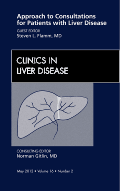
Clinics in Liver Disease
Unveiling the complexities of hepatology for better care.Clinics in Liver Disease is an esteemed peer-reviewed journal published by W B Saunders Co-Elsevier Inc, dedicated to advancing the field of hepatology. Established in 1997 and covering a broad range of topics within liver disease research, this journal serves as a vital resource for researchers, clinicians, and students engaged in the study of liver health and diseases. With a commendable impact factor placing it within the Q2 category in Hepatology and ranking #32 out of 82 in the Scopus classifications, it consistently disseminates high-quality research and clinical insights. The journal’s commitment to promoting understanding and management of liver diseases is reflected in its rigorous editorial standards and comprehensive review processes. Although not an open-access publication, Clinics in Liver Disease offers subscription options that ensure accessibility to up-to-date research and reviews critical for both academic and clinical success.

Korean Journal of Gastroenterology
Uniting Experts for Enhanced Digestive Health SolutionsKorean Journal of Gastroenterology (ISSN: 1598-9992, E-ISSN: 2233-6869), published by the Korean Society of Gastroenterology, has been a premier outlet for research and advancements in the field of gastroenterology since its inception in 1968. This open-access journal, based in South Korea, fosters a global dialogue on gastrointestinal health, embracing contributions from a diverse array of disciplines within medicine. It is currently ranked in the Q4 quartile for miscellaneous medicine and holds a Scopus rank of #323 out of 636 in general medicine, reflecting its commitment to publishing impactful research despite its relatively recent establishment in high-impact metrics. With a continuous publication timeline extending through to 2024, the journal aims to enhance understanding of gastrointestinal disorders and promote innovative treatments, making it an essential resource for researchers, clinicians, and students alike who seek to stay abreast of the latest developments and clinical applications in gastroenterology.

JHEP Reports
Unlocking innovations in gastroenterology and beyond.JHEP Reports, published by ELSEVIER, stands at the forefront of scholarly communication in the fields of Gastroenterology, Hepatology, Immunology and Allergy, and Internal Medicine. As an Open Access journal since 2019, it provides a platform for the dissemination of high-quality research findings, making vital information readily accessible to a global audience. With a commendable impact characterized by a Q1 category ranking across four medical disciplines in 2023, JHEP Reports demonstrates its significance and influence, reflected in its impressive Scopus ranks—#11 in Gastroenterology and #14 in Internal Medicine, amongst others. This esteemed journal not only plays a critical role in advancing knowledge but also fosters collaboration among researchers, practitioners, and students keen on exploring innovations and breakthroughs in health sciences. At RADARWEG 29, 1043 NX AMSTERDAM, NETHERLANDS, JHEP Reports is committed to bridging the gap between research and application, ushering in a new era of informed and effective healthcare solutions.

Clinical Gastroenterology and Hepatology
Transforming Knowledge into Clinical PracticeClinical Gastroenterology and Hepatology, published by Elsevier Science Inc, stands as a leading journal in the fields of gastroenterology and hepatology. With an ISSN of 1542-3565 and an E-ISSN of 1542-7714, this esteemed publication has earned its place in the top quartile (Q1) of both gastroenterology and hepatology categories as of 2023, ranking 6th out of 167 and 7th out of 82 respectively. The journal aims to disseminate innovative research, clinical studies, and case reports that advance the understanding and treatment of gastrointestinal and liver diseases. Targeted towards researchers, healthcare professionals, and students, it provides crucial insights into emerging therapies and medical advancements. Clinical Gastroenterology and Hepatology is not only a pivotal resource for contemporary gastroenterological research but also fosters collaboration and knowledge-sharing within the medical community. With a converging publication history from 2003 to the present, the journal continues to build on its solid foundation of scientific excellence and relevance.